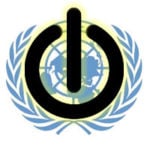 Greetings and salutations, gracious readers! My name is Chris Doten, and I’ll be your guide as we tour the networked wilderness of international relations in the Internet age.
Greetings and salutations, gracious readers! My name is Chris Doten, and I’ll be your guide as we tour the networked wilderness of international relations in the Internet age.
I’ve spent years working with computers, networks, and web applications, got myself a foreign policy degree from Tufts’ Fletcher School, and have bummed around in China and Kyrgyzstan.
Foreign policy, like all aspects of human society, has been transformed by these little silicon brains adding ones and zeros. Ideas of war, peace, and national security have all changed in significant ways, and how we connect and organize together has as well.
As machines take over most aspects our lives, the global battlefield is no longer just lines of tanks rumbling towards each other in Central Europe. (Poland, you may now relax. A bit.) Instead computers and networks are in hot war, 24/7/365, and fundamentally different threats and opportunities exist.
The Internet is changing foreign policy in connections and communication as well. The default position is now that everyone, everywhere can talk to each other instantly and for free.
This is a revolutionary change.
The ramifications are only beginning to be felt. Authoritarians put up filters, censors attempt to control the conversation, and political hacks scream their heads off while the rest of us watch, uh, entertainment, but this extraordinary fact remains.
In this Brave New World, Westphalian nation-states are under pressure from new actors and international alliances, whether citizens organizing online against terrorist groups or terrorist groups organizing online against citizens.
Of course, maybe the globalization of communications and culture means we can all just get together and dance.